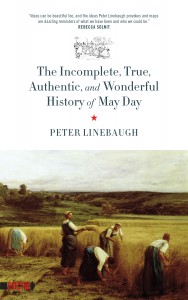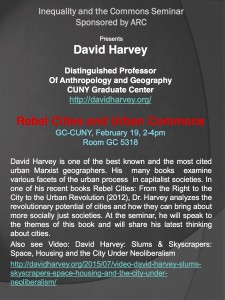About the book:
“May Day is about affirmation, the love of life, and the start of spring, so it has to be about the beginning of the end of the capitalist system of exploitation, oppression, war, and overall misery, toil, and moil.” So writes celebrated historian Peter Linebaugh in an essential compendium of reflections on the reviled, glorious, and voltaic occasion of May 1st.
It is a day that has made the rich and powerful cower in fear and caused Parliament to ban the Maypole—a magnificent and riotous day of rebirth, renewal, and refusal. These reflections on the Red and the Green—out of which arguably the only hope for the future lies—are populated by the likes of Native American anarcho-communist Lucy Parsons, the Dodge Revolutionary Union Movement, Karl Marx, José Martí, W.E.B. Du Bois, Rosa Luxemburg, SNCC, and countless others, both sentient and verdant. The book is a forceful reminder of the potentialities of the future, for the coming of a time when the powerful will fall, the commons restored, and a better world born anew.
Peter Linebaugh is a child of empire, schooled in London, Cattaraugus, N.Y., Washington D.C., Bonn, and Karachi. He went to Swarthmore College during the civil rights days. He has taught at Harvard University and Attica Penitentiary, at New York University and the Federal Penitentiary in Marion, Illinois. He used to edit Zerowork and was a member of the Midnight Notes Collective. He coauthored Albion’s Fatal Tree, and is the author of The London Hanged, The Many-Headed Hydra (with Marcus Rediker), The Magna Carta Manifesto, and introductions to a Verso book of Thomas Paine’s writing and PM’s new edition of E.P. Thompson’s William Morris: Romantic to Revolutionary. He works at the University of Toledo, Ohio. He lives in the Great Lakes region with a great crew, Michaela Brennan, his beautiful partner, and Riley, Kate, Alex, and Enzo




